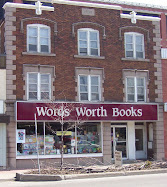 Author Sarah Dunant has this good little article in last week’s Globe & Mail, questioning the presumption that historical fiction may be seen as childish.
Author Sarah Dunant has this good little article in last week’s Globe & Mail, questioning the presumption that historical fiction may be seen as childish.I cut my teeth on Tudor historical fiction and historical fictional biographies of famous women. If it had a gold-leafed, period image of a woman on the cover, I ate it up. I was very keen on anything about Elizabeth I. Actually one of my very favourite books growing up was I, Elizabeth by Rosalind Miles. I remember that this one in particular focussed on Liz’s childhood and teenage years and I loved that! It was crazy for me to think of famous women even being that age, at the time. I completely connected with the mythos that Rosalind Miles had forged, filling in concrete historical fact with a creator’s heart.
I also read history books about my period ladies, namely The Wives of Henry VIII by Antonia Fraser and Elizabeth by David Starkey, but I truly loved reading about the “inner” lives of these women because I could connect with that. And the fictional side of history could do that for me. I was more about imagination and tone, although I clung to historical fact, chomping at the bit if some new author got it “wrong”. Historical fiction made me righteous and obsessed with Tudor England. I thought the coolest book in my collection was a little blue cloth bound edition of the history of the Tower of London, including tower schematics and drawings. I was 15 and in love with Shakespeare (I think of that girl from 10 Things I Hate About You and it’s like I’m looking into a mirror!). I feel bad now for any interested boys of the time, “What? You don’t write sonnets? Begone you clod of wayward marl!”
I guess I came to the end of historical fiction in University, when a few horrible English literature survey classes killed my interest in anything “old”. Sarah Dunant, supposedly the focus of this entire story, mentions a drop away from historical fiction during her University days as well. She fell back into old ways after school when she realized she wanted to “write a different kind of historical novel from those that turned me into a historian: a novel steeped in [this] new research, especially about women, but used in a way which always added to the story, a story in which everything but the characters was true”. And although I slowly caress every gold-leafed, period woman cover that arrives in the store, I am still waiting for my second historical fiction wind. This Sarah Dunant essay pushed me a little closer to it.
Mandy


No comments:
Post a Comment